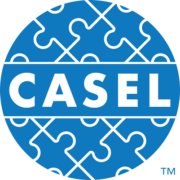Middle School Program
BASE Education’s middle school curriculum is specifically designed for students in grades 6-8 and reflect the unique needs of the middle school learner. This includes more concise content with relatable examples and images, leveled vocabulary and topic discussion, and developmentally appropriate lines of questioning.
The modules offer accompanying educator guides, parent/guardian versions, and instructional versions (for use in the classroom and small group settings).
How Our Program Helps
We provide a space for students to connect with their feelings and take the opportunity to internalize and process their emotions.
Educator Guides
Modularized Content
Journalistic Introspection


Everyone was impacted by the events of last year and all students continue to feel the impact in various ways.

Defines adrenaline, distinguishes between fight or flight, discusses teenage thrill-seeking, highlights the impact adrenaline has on the body, defines alternatives, explores barriers to success, and provides tools to overcome challenges.

Defines extreme thinking patterns, discusses the drawbacks and tendencies of such patterns, describes healthy alternatives to dysfunctional habits, highlights the impact of limited thinking, and explores barriers to success.

Defines anger management, discusses the importance of controlling anger, teaches the different types of anger such as passive, passive aggressive, assertive, and aggressive.

This module will help you to understand anxiety, recognize the signs, and develop coping strategies as well as help-seeking behaviors.

Defines exploitation, outlines safety, and highlights pitfalls for potentially dangerous relationships.

This module is intended to protect you, protect others, and to help all students find their healthy path.

Defines positive character traits such as empathy, honesty, integrity, accountability, and respect.

Defines coping strategies, highlights the importance, provides examples, helps to individually define skills that work for each student.

This module will teach the basic facts about the Coronavirus, including how to protect yourself.

Defines "family", and helps student identify those traits learned from being a part of that "family" unit.

In this module, students will learn to identify their emotions and read their physical cues, to cope with depressive symptoms.

This module will create safety in the use of technology and outline appropriate behavior in the digital world.

Defines what it means to have goals and highlights the benefit of being focused.

This module will help you to get to know your students at the beginning of a relationship, whether it's the start of a term, or a newer connection, you will learn about your students thoughts, abilities, and interests.

Defines healthy communication, discusses the importance of communicating well, teaches the different types of communication such as verbal, non-verbal, body language, and tone.

A module about evaluating and building healthy peer relations.

Defines impulsivity, discussed repercussions of dangerous behavior, discusses teenage tendencies, defines alternative behaviors, explores barriers to success, provides tools to overcome challenges, teaches healthy replacements, and reviews a plan for the future.

Defines irrational thinking, demonstrates how irrational thinking may be harmful, identifies how to overcome negative patterns, teaches about teenage tendencies to think irrationally.

Defines learned helplessness, uncovers origins of such beliefs, demonstrates how overcoming helplessness lends itself to empowerment.

This module will help students to say "no thanks" to uncomfortable or risky situations.

"Life Changes and Adjustments" is designed to help students to process the biggest of life changes to the smallest.

In this module, students will begin to learn about mindfulness.

Defines motivation, outlines the various types, explores barriers to success, and provides tools to overcome challenges.

Defines impacts of behavior, outlines the types of impacts, discusses importance of understanding one’s effect on their world, and highlights drawback of negative impacts.

Reviews and collaborates all skills used in modules for a successful return to school and life.

This module is intended for in-the-moment disruptive behaviors.

Defines restorative practices, outlines types of harm, discusses the importance of creating safety in one’s environment, specifies ways in which to establish safety and trust.

Defines self-esteem, outlines types, discusses how to develop a stronger sense of self-esteem.

Defines successful reintegration.

This module will help students to understand the definition of stress and learn how it manifests itself in their minds, bodies, and actions.

This module talks about depression, facts around suicide, risk factors, protective factors, and guides students through proper intervention strategies.

Defines appropriate communication with grown-ups and discusses the importance of being able to verbalize thoughts, feelings, and emotions in a healthy manner.

Helping to keep kids in school by exploring challenges, barriers to attending, personal pitfalls, and providing ways to overcome these challenges to return, and stay in school.

Defines vision of self, discusses, healthy versus unhealthy perspectives, teaches how to implement healthy viewpoints, discusses personal vision, outlines tools for growth.

Prerequisite first class for all students. Includes module instructions and mandatory disclosure.
